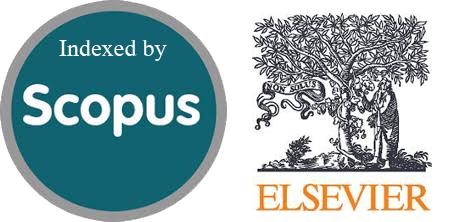Compliance with Second Visit of Diabetes Mellitus Screening Program and Impact of Dietary and Exercise Modification on Glycemic Control
DOI:
https://doi.org/10.54133/ajms.v8i2.1929Keywords:
Compliance, Dietary control, Diabetes mellitus, Physical activity, Primary health care, ScreeningAbstract
Background: Diabetes is frequently not diagnosed until complications appear. Therefore, diabetes can be considered the top candidate for early detection and management. Objectives: To assess the non-compliance level of the 2nd visit of the screening program for diabetes and to evaluate the effect of diet and exercise modification on glycemic control. Methods: The first part was a cross-sectional study with analytic components, and the second was an interventional study during a period of one year, from September 2023 to September 2024. It included 400 adults aged ≥ 40 years, who were included in the program of early diabetes detection and showed an elevated blood sugar level; then they were scheduled for the 2nd visit for follow-up. HbA1c %, body mass index, and waist circumference were evaluated, and then these patients were put on a diet and exercise program to be evaluated again after three months. Results: The prevalence of non-compliance is 64.4%. Lower educational level, not enough time to explain problems by the provider, fear and worry about diagnosis, hesitation to treatment, and not giving an appointment for a 2nd visit are independent risk factors. Means of BMI, WC, and HbA1c were significantly decreased after three months of lifestyle modification. Conclusions: Non-compliance with the 2nd visit of the program of early detection of diabetes is a common problem among Iraqis. The primary care infrastructure and expertise are lacking in Iraq, and healthcare provision relies heavily on secondary and tertiary care.
Downloads
References
Lin X, Xu Y, Pan X, Xu J, Ding Y, Sun X, et al. Global, regional, and national burden and trend of diabetes in 195 countries and territories: an analysis from 1990 to 2025. Sci Rep. 2020;10(1):1-11. doi: 10.1038/s41598-020-71908-9. DOI: https://doi.org/10.1038/s41598-020-71908-9
Shi M, Zhang X, Wang H. The prevalence of diabetes, prediabetes and associated risk factors in Hangzhou, Zhejiang Province: A community-based cross-sectional study. Diabetes Metab Syndrome Obes Targets Ther. 2022:713-721. doi: 10.2147/DMSO.S351218. DOI: https://doi.org/10.2147/DMSO.S351218
Abusaib M, Ahmed M, Nwayyir HA, Alidrisi HA, Al-Abbood M, Al-Bayati A, et al. Iraqi experts consensus on the management of type 2 diabetes/prediabetes in adults. Clin Med Insight Endocrinol Diabetes. 2020;13:1179551420942232. doi: 10.1177/1179551420942232. DOI: https://doi.org/10.1177/1179551420942232
Hossain MJ, Al‐Mamun M, Islam MR. Diabetes mellitus, the fastest growing global public health concern: Early detection should be focused. Health Sci Rep. 2024;7(3):e2004. doi: 10.1002/hsr2.2004. DOI: https://doi.org/10.1002/hsr2.2004
Correia JC, Lachat S, Lagger G, Chappuis F, Golay A, Beran D. Interventions targeting hypertension and diabetes mellitus at community and primary healthcare level in low- and middle-income countries:a scoping review. BMC Pub Health. 2019;19(1):1542. doi: 10.1186/s12889-019-7842-6. DOI: https://doi.org/10.1186/s12889-019-7842-6
Rossing P, Caramori ML, Chan JCN, Heerspink HJL, Hurst C, Khunti K, et al. KDIGO 2022 clinical practice guideline for diabetes management in chronic kidney disease. Kidney Int. 2022;102(5):S1-S127. doi: 10.1016/j.kint.2022.06.013. DOI: https://doi.org/10.1016/j.kint.2022.06.008
Akinwumi AF, Esimai OA, Arije O, Ojo TO, Esan OT. Preparedness of primary health care facilities on implementation of essential non-communicable disease interventions in Osun State South-West Nigeria: a rural–urban comparative study. BMC Health Services Res. 2023;23(1):154. doi: 10.1186/s12913-023-09138-8. DOI: https://doi.org/10.1186/s12913-023-09138-8
Selph S, Dana T, Blazina I, Bougatsos C, Patel H, Chou R. Screening for type 2 diabetes mellitus: a systematic review for the US preventive services task force. Ann Intern Med. 2015;162(11):765-776. doi: 10.7326/M14-2221. DOI: https://doi.org/10.7326/M14-2221
Duan D, Kengne AP, Echouffo-Tcheugui JB. Screening for diabetes and prediabetes. Endocrinol Metab Clin North Am. 2021;50(3):369-385. doi: 10.1016/j.ecl.2021.05.002. DOI: https://doi.org/10.1016/j.ecl.2021.05.002
Mendoza Reyes R. Therapeutic adherence in patients with chronic non-communicable diseases: diabetes, hypertension and obesity. Medicina y ética. 2021;32(4):897-945. doi: 10.36105/mye.2021v32n4.01. DOI: https://doi.org/10.36105/mye.2021v32n4.01
Burnier M. The role of adherence in patients with chronic diseases. Eur J Intern Med. 2024;119:1-5. doi: 10.1016/j.ejim.2023.07.008. DOI: https://doi.org/10.1016/j.ejim.2023.07.008
Chong S, Ding D, Byun R, Comino E, Bauman A, Jalaludin B. Lifestyle changes after a diagnosis of type 2 diabetes. Diabetes Spectr. 2017;30(1):43-50. doi: 10.2337/ds15-0044. DOI: https://doi.org/10.2337/ds15-0044
Trust WSNF. Basic dietary advice for people newly diagnosed with diabetes 2024 [updated 9/3/2024. Available from: chrome-extension://efaidnbmnnnibpcajpcglclefindmkaj/https://www.wsh.nhs.uk/CMS-Documents/Patient-leaflets/DiabetesUnit/6392-2-Diabetes-basic-diet-advice-for-newly-diagnosed.pdf.
Prevention CfDCa. Diabetes 2024 [updated 15/5/2024. Available from: https://www.cdc.gov/diabetes/living-with/physical-activity.html#:~:text=The%20goal%20is%20to%20get,increase%20your%20strength%20and%20stability
Yang YJ. An overview of current physical activity recommendations in primary care. Korean J Fam Med. 2019;40(3):135-142. doi: 10.4082/kjfm.19.0038. DOI: https://doi.org/10.4082/kjfm.19.0038
AlKhaldi YM, AlMosa AA, AlQassem MY, Ahmad SS. Audit of diabetic care in family practice center in Abha City, Aseer region: CBAHI standards application. J Family Med Prim Care. 2020;9(6):2849-2853. doi: 10.4103/jfmpc.jfmpc_366_20. DOI: https://doi.org/10.4103/jfmpc.jfmpc_366_20
Yashkin AP, Sloan F. Adherence to guidelines for screening and medication use: Mortality and onset of major macrovascular complications in elderly persons with diabetes mellitus. J Aging Health. 2018;30(4):503-520. doi: 10.1177/0898264316684270. DOI: https://doi.org/10.1177/0898264316684270
Meiqari L, Nguyen TP, Essink D, Zweekhorst M, Wright P, Scheele F. Access to hypertension care and services in primary health-care settings in Vietnam: a systematic narrative review of existing literature. Glob Health Action. 2019;12(1):1610253. doi: 10.1080/16549716.2019.1610253. DOI: https://doi.org/10.1080/16549716.2019.1610253
Kvarnström K, Westerholm A, Airaksinen M, Liira H. Factors contributing to medication adherence in patients with a chronic condition: A scoping review of qualitative research. Pharmaceutics. 2021;13(7):1100. doi: 10.3390/pharmaceutics13071100. DOI: https://doi.org/10.3390/pharmaceutics13071100
Krot K, Sousa JP. Factors impacting on patient compliance with medical advice: empirical study. Engineer Manage Product Services. 2017;9(2):73-81. doi: 10.1515/emj-2017-0016. DOI: https://doi.org/10.1515/emj-2017-0016
Danaher TS, Berry LL, Howard C, Moore SG, Attai DJ. Improving how clinicians communicate with patients: an integrative review and framework. Journal of Service Research. 2023;26(4):493-510. doi: 10.1177/10946705231190018. DOI: https://doi.org/10.1177/10946705231190018
Pourhabibi N, Sadeghi R, Mohebbi B, Shakibazadeh E, Sanjari M, Tol A, et al. Factors affecting nonadherence to treatment among type 2 diabetic patients with limited health literacy: Perspectives of patients, their families, and healthcare providers. J Edu Health Promot. 2022;11(1):388. doi: 10.4103/jehp.jehp_804_22. DOI: https://doi.org/10.4103/jehp.jehp_804_22
Jin J, Sklar GE, Min Sen Oh V, Chuen Li S. Factors affecting therapeutic compliance: A review from the patient's perspective. Ther Clin Risk Manag. 2008;4(1):269-286. doi: 10.2147/tcrm.s1458. DOI: https://doi.org/10.2147/TCRM.S1458
Baryakova TH, Pogostin BH, Langer R, McHugh KJ. Overcoming barriers to patient adherence: the case for developing innovative drug delivery systems. Nat Rev Drug Discov. 2023;22(5):387-409. doi: 10.1038/s41573-023-00670-0. DOI: https://doi.org/10.1038/s41573-023-00670-0
Anand K, Jain S. Impact of lifestyle modification: An intervention on newly diagnosed diabetics of the Urban Slum of Meerut. Cureus. 2024;16(4):e58844. doi: 10.7759/cureus.58844. DOI: https://doi.org/10.7759/cureus.58844
Pot GK, Battjes-Fries MC, Patijn ON, Pijl H, Witkamp RF, de Visser M, et al. Nutrition and lifestyle intervention in type 2 diabetes: pilot study in the Netherlands showing improved glucose control and reduction in glucose lowering medication. BMJ Nutr Prev Health. 2019;2(1):43-50. doi: 10.1136/bmjnph-2018-000012. DOI: https://doi.org/10.1136/bmjnph-2018-000012
Sukla P, Shrivastava SR, Shrivastava PS. A longitudinal study to assess the impact of exercise on clinical, biochemical, and anthropometric parameters among the type 2 diabetes patients of South India. Avicenna J Med. 2015;5(1):16-20. doi: 10.4103/2231-0770.148504. DOI: https://doi.org/10.4103/2231-0770.148504
Ahmad F, Joshi SH. Self-care practices and their role in the control of diabetes: A narrative review. Cureus. 2023;15(7):e41409. doi: 10.7759/cureus.41409. DOI: https://doi.org/10.7759/cureus.41409
Sanderson H, Loveman E, Colquitt J, Royle P, Waugh N, Tan BK. Improving uptake of postnatal checking of blood glucose in women who had gestational diabetes mellitus in universal healthcare settings: A systematic review. J Clin Med. 2018;8(1):4. doi: 10.3390/jcm8010004. DOI: https://doi.org/10.3390/jcm8010004
Balaji B, Mohan AR, Rajendra P, Mohan D, Ram U, Viswanathan M. Gestational diabetes mellitus postpartum follow-up testing: challenges and solutions. Canadian J Diabetes. 2019;43(8):641-646. doi: 10.1016/j.jcjd.2019.04.011. DOI: https://doi.org/10.1016/j.jcjd.2019.04.011

Downloads
Published
How to Cite
Issue
Section
License
Copyright (c) 2025 Al-Rafidain Journal of Medical Sciences ( ISSN 2789-3219 )

This work is licensed under a Creative Commons Attribution-NonCommercial-ShareAlike 4.0 International License.
Published by Al-Rafidain University College. This is an open access journal issued under the CC BY-NC-SA 4.0 license (https://creativecommons.org/licenses/by-nc-sa/4.0/).











